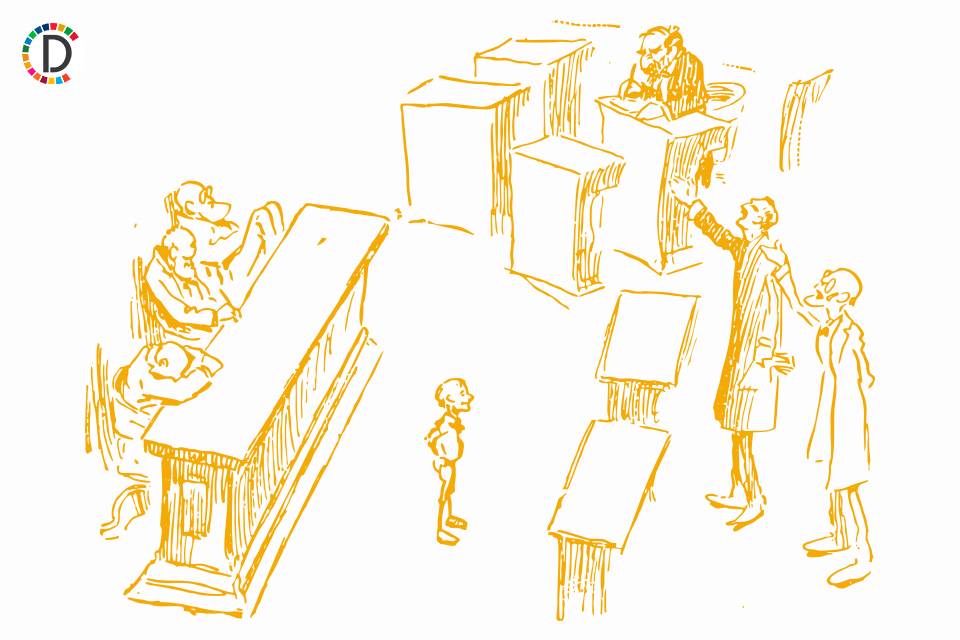Beirut port blast justice postponed as renewed probe is rejected
Lebanon's top public prosecutor on Wednesday charged the judge investigating the Beirut port blast and ordered the release of those detained in connection with the explosion, derailing an attempt to resume the probe into the devastating event.

Lebanon's top public prosecutor on Wednesday charged the judge investigating the Beirut port blast and ordered the release of those detained in connection with the explosion, derailing an attempt to resume the probe into the devastating event. The moves by Ghassan Oweidat signal escalating opposition by Lebanon's ruling establishment to efforts by Judge Tarek Bitar to reopen the probe into the Aug. 4, 2020, blast that killed more than 220 people.
Bitar told Reuters on Wednesday that Oweidat "had no right" to file the charge or release detainees because Oweidat himself was charged over the explosion. A judicial source said Bitar had been charged with mishandling the probe. "I will continue my probe until I issue an indictment," he said.
Oweidat told Reuters he had summoned Bitar for questioning but did not say whether he had charged him. Oweidat also issued a travel ban against Bitar and a decision saying the judge did not have the authority to resume his investigation. Both documents were seen by Reuters.
A parliamentarian from powerful armed group Hezbollah on Wednesday said Oweidat's decisions were "a step in the right direction." Hezbollah has campaigned against Bitar as he sought to question its allies in connection with the probe. Its head Hassan Nasrallah said in 2021 that Bitar should be removed.
In 2022, the probe was suspended following high-level political interference and legal complaints against the judge. Bitar on Monday unexpectedly resumed his investigation into the explosion based on a legal opinion, and charged top current and former officials - including Oweidat.
Oweidat had earlier recused himself from any involvement in the blast probe as Bitar had issued an arrest warrant for his brother-in-law, former public works minister Ghazi Zeaiter. Western nations and the United Nations have called for accountability over the blast.
U.S. State Department spokesperson Ned Price on Wednesday reiterated a call for a "swift and transparent" investigation. "The victims of this August 2020 explosion deserve justice and we believe those responsible must be held to account," Price said at a news briefing.
Wednesday's developments set up a tug-of-war in Lebanon's judiciary, which is prone to political influence with many appointments determined by politicians. "Instead of me appearing before him, he'll be appearing before me," Oweidat told Reuters by text message.
Bitar said he had been informed of Oweidat's charges verbally and, without a written summons, would not attend an interrogation session on Thursday. "Oweidat wants to see me? I want to see him too," he shot back in comments to Reuters.
STATE OF SHOCK The explosion, one of the largest non-nuclear blasts on record, was caused by hundreds of tonnes of ammonium nitrate unloaded at the port in 2013.
To many Lebanese, the disaster symbolised the wider corruption and mismanagement of a ruling elite that had also steered Lebanon into a devastating financial collapse. In turn, they see in Bitar a flicker of hope that justice may one day be served in a country where impunity has long been the norm.
He met with French investigators visiting Beirut last week as part of a French probe into the explosion, whose victims included two French nationals. He was unable to share documents with them at the time because the investigation was frozen. "When we heard that Bitar had resumed his probe, we were positively surprised – but still cautious given how quickly they could stop him. And I guess we were right," said Paul Naggear, who lost his young daughter Alexandra in the blast.
She would have been six on Thursday. "It's the hardest day of the year," Naggear said.
Oweidat on Wednesday also ordered the release of all those detained in connection with the probe "without exception" but said they would face a travel ban. At least 17 people, mostly low- to mid-level officials, had been detained since 2020 in relation to the case, said Amnesty International, in conditions it said could violate their due process rights.
Badri Daher, who headed the customs authority at the time of the blast and was the most senior official detained following the explosion, was freed on Wednesday, his sister Evelyn told Reuters. "We are in a state of shock and are massively happy after these years of injustice. Thank God," she said. (Additional reporting by Maya Gebeily and Daphne Psaledakis; Writing by Maya Gebeily; Editing by Frank Jack Daniel, William Maclean, Nick Macfie, Bernadette Baum and Daniel Wallis)
(This story has not been edited by Devdiscourse staff and is auto-generated from a syndicated feed.)










